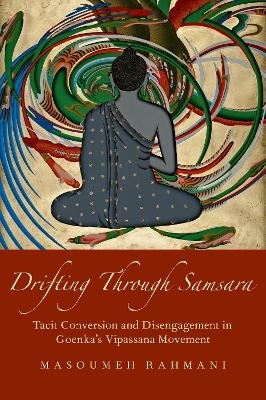
Drifting through Samsara
Oxford University Press Inc (Verlag)
978-0-19-757996-1 (ISBN)
Rahmani finds that as a consequence of its linguistic strategies, deconversion is a rare exit pattern from this movement. In general, however, the themes and characteristics of both disaffiliation and deconversion fit the contours of exit from other traditions, even though conversion was tacit in the first place. The book thus questions the normative participant recruitment approach in conversion studies and argues that a simple reliance on the informants' identification with or rejection of religious labels fails to encompass the tonalities of conversion in the contemporary spiritual landscape.
Masoumeh Rahmani is a lecturer in Religious Studies at the School of Social and Cultural Studies in Victoria University of Wellington. She received her PhD from the University of Otago in 2017 and has previously held a research associate position in the Brain, Belief, and Behaviour lab at Coventry University. Her research interests include religious change, meditation movements, atheism and unbelief, and Asian spiritualities in non-Asian contexts. Her latest longitudinal project explored the diversity of "unbelief" in the mindfulness subcultures of the UK and the US and examined the influence of the practice on the worldviews of non-religious/atheist practitioners.
Abstract
Acknowledgments
List of Figures
A Note on Terminology and Transcription
Conventions of Transcription
Introduction
Chapter I: Conversion Career
Chapter II: Tacit Conversion
Chapter III: Pragmatic Leaving
Chapter IV: Vipassana Disaffiliation Narratives
Chapter V: Disaffiliation Trajectories
Chapter VI: Deconversion: Breathing New Self into Not-Self
Concluding Discussions
Bibliography
Appendix 1: Vipassana Ten-day Course Timetable
Appendix 2: Participants' Information
| Erscheinungsdatum | 04.10.2021 |
|---|---|
| Reihe/Serie | AAR Academy Series |
| Verlagsort | New York |
| Sprache | englisch |
| Maße | 224 x 150 mm |
| Gewicht | 476 g |
| Themenwelt | Geisteswissenschaften ► Religion / Theologie ► Buddhismus |
| Sozialwissenschaften ► Ethnologie | |
| Sozialwissenschaften ► Soziologie | |
| ISBN-10 | 0-19-757996-5 / 0197579965 |
| ISBN-13 | 978-0-19-757996-1 / 9780197579961 |
| Zustand | Neuware |
| Haben Sie eine Frage zum Produkt? |
aus dem Bereich


